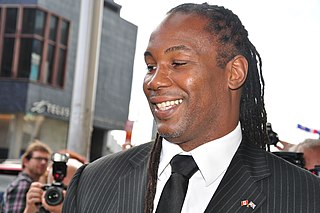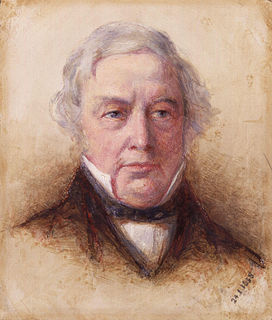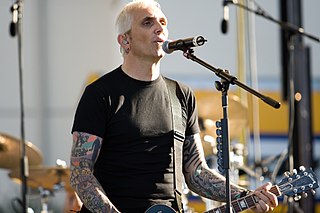A Quote by Lennox Lewis
How can you trust a man who can talk for 5 minutes and you cant understand a sentence of it!
Related Quotes
Never trust the translation or interpretation of something without first trusting its interpreter. One word absent from a sentence can drastically change the true intended meaning of the entire sentence. For instance, if the word love is intentionally or accidentally replaced with hate in a sentence, its effect could trigger a war or false dogma.
Every sentence has a truth waiting at the end of it and the writer learns how to know it when he finally gets there. On one level this truth is the swing of the sentence, the beat and poise, but down deeper it's the integrity of the writer as he matches with the language. I've always seen myself in sentences. I begin to recognize myself, word by word, as I work through a sentence. The language of my books has shaped me as a man. There's a moral force in a sentence when it comes out right. It speaks the writer's will to live.
There is this tremendous amount of arrogance and hubris, where somebody can look at something for five minutes and dismiss it. Whether you talk about gaming or 20th century classical music, you can't do it in five minutes. You can't listen to 'The Rite of Spring' once and understand what Stravinsky was all about.
Jarndyce and Jarndyce drones on. This scarecrow of a suit, has, in course of time, become so complicated that no man alive knows what it means. The parties to it understand it least; but it has been observed that no two Chancery lawyers can talk about it for five minutes, without coming to total disagreement as to all the premises.
One of the many lessons I hope I've learned is how much I underestimated people, their open-mindedness and their willingness to understand. I think, moreover, I underestimated the degree to which everyone has a story. So my advice, for whatever it's worth, is to trust readers, trust the truth and trust the power of storytelling.
Writing is linear and sequential; Sentence B must follow Sentence A, and Sentence C must follow Sentence B, and eventually you get to Sentence Z. The hard part of writing isn't the writing; it's the thinking. You can solve most of your writing problems if you stop after every sentence and ask: What does the reader need to know next?






































